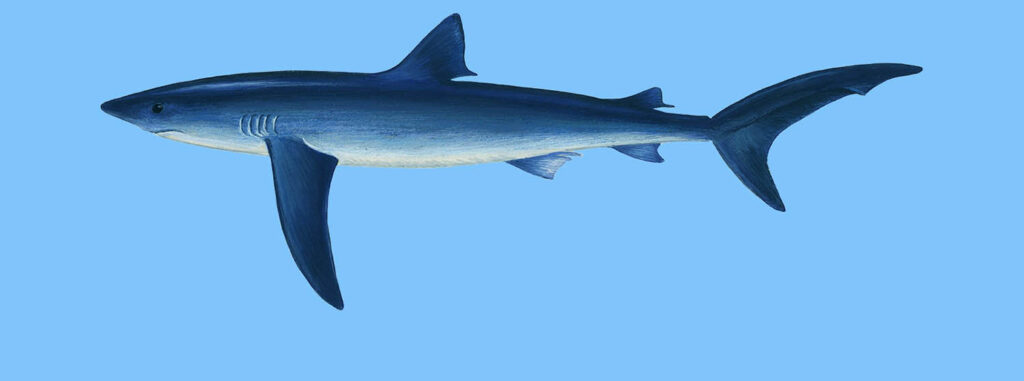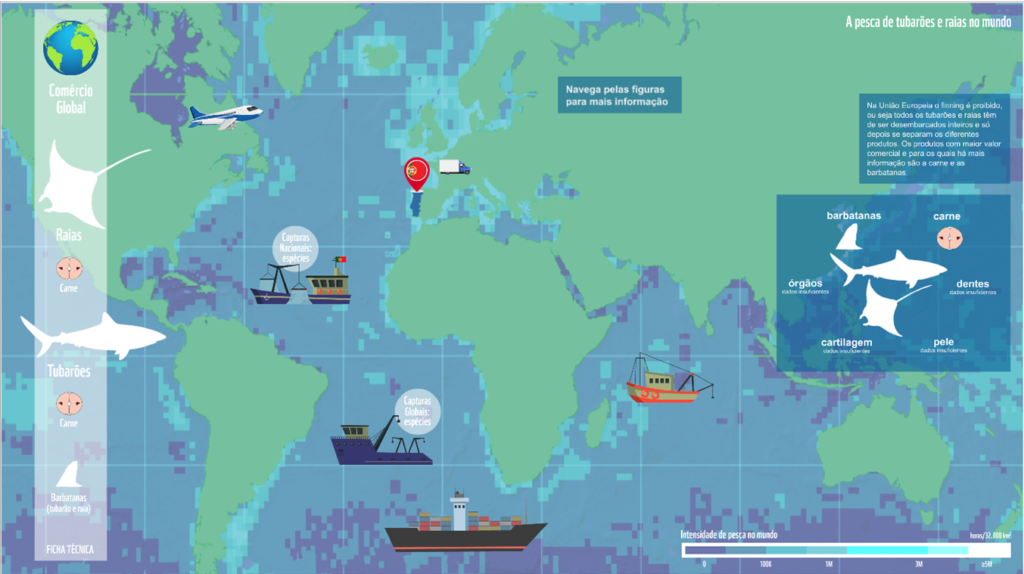Portugal is the 2nd country in the world with the largest known exports of shark meat and the 6th largest importer of ray meat in terms of volume, reveals the Associação Natureza Portugal (ANP)/WWF, in anticipation of the World Day of Oceanos, celebrated on the 8th of June.
The environmental NGO launches an interactive map showing overexploitation, the global trade routes for the main products based on sharks and rays (meat and fins), and the impact our country has on establishing trade bridges between major importers and exporters, such as Brazil, Italy, Spain and Namibia.
“The world trade in sharks and rays is depleting these species, and moves more than 4 billion dollars annually, involving more than 190 countries or territories. The value resulting from the trade in shark and ray meat is currently almost double the value of the trade in their fins, despite the fact that they receive much more media attention”, shared Ângela Morgado, executive director of ANP|WWF.
“This trade is poorly regulated, non-transparent and perpetuates the exploitation of these species in an unhealthy way for them and for us, since the balance of the ecosystem largely depends on them,” he added.
Spain is Portugal's main trading partner when it comes to sharks and rays: 95% of ray meat imports come from Spain and 75% of Portugal's shark meat exports go to Spain.
For Ana Henriques, specialist in Oceans and Fisheries at the same NGO, “implementing measures to protect sharks and rays in Portugal has the potential to affect the entire global commercial network, which justifies the creation of a National Action Plan for the Management and Conservation of Sharks and Rays, which would place Portugal in the European leadership in the protection of these species, setting an example to other European countries that are important in trade, such as Spain and Italy, so that they reinforce and improve the protection of these species both at the level of fishing as well as its trade”.
Although the role played by Portugal is mainly for export, especially when it comes to sharks, the ANP|WWF also warns that «consumption also happens in Portugal, often in a hidden way».

To demonstrate this, the NGO created a consumption guide that refers to the dozens of gastronomic dishes based on sharks and rays that are being consumed in Portugal, and the most common commercial names that, mainly in relation to sharks, do not allow to identify directly. the species consumed (such as dogfish, dyke, and pata-roxa).
In addition to gastronomy, shark and ray products (which are extracted from different parts of the body) have applications in cosmetics, pharmacy, animal nutrition, food supplements, industrial use, decorative products, among others.
This work follows on from the launch of the Guardians of the Ocean in Crisis report, in 2021, where the NGO pointed to the need to adopt measures that minimize the main threats, in terms of fishing and trade, as well as to strengthen governance issues, for example, improving fisheries monitoring and control, and implementing good on-board practices that improve the survival of individuals released at sea. Since that report, the previous executive started the creation of a National Action Plan for the Management and Conservation of Sharks and Rays, which should now be transferred to the new executive and be put up for discussion with the different stakeholders, so that the its implementation.
This report warned that, of the 117 species that are known in our waters, almost half are already threatened, which, for Ana Henriques, “is a clear symptom of marine overexploitation, with repercussions on balance, productivity, resilience and ocean's ability to mitigate the effects of climate change. Sharks and rays are much more important in the ocean than on our plate. To reverse this situation, we urgently need to develop and implement a National Action Plan to protect them, as promised by the previous Government”.
Funded by the Oceano Azul Foundation, this project is part of the NGO training program, established by the Foundation in 2019, whose objective is to contribute to the sustainability of the ocean and the adoption of conservation policies, enabling ANP|WWF in the process of evolution into an NGO even more focused on ocean conservation.



















Comments